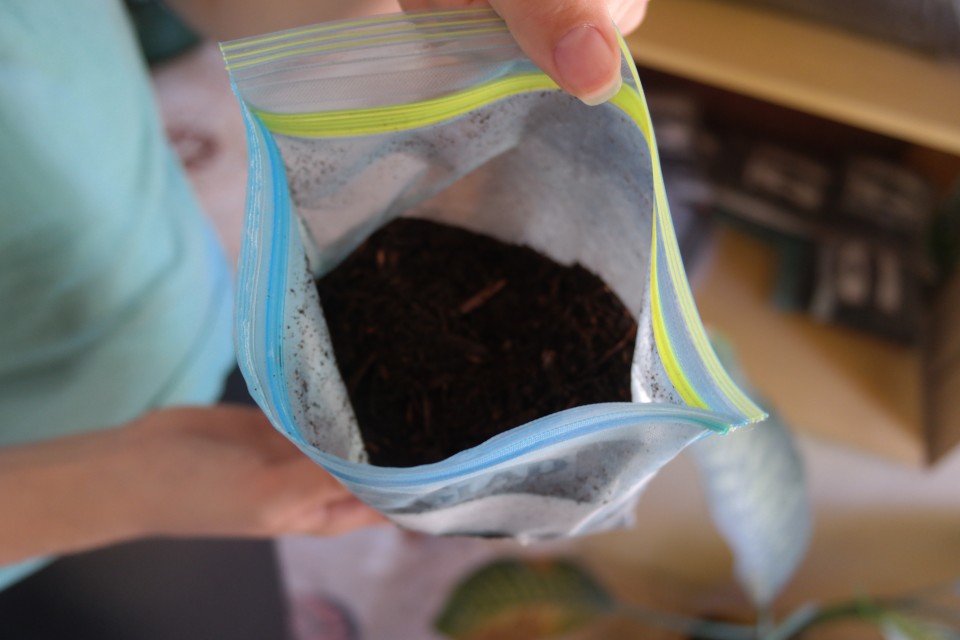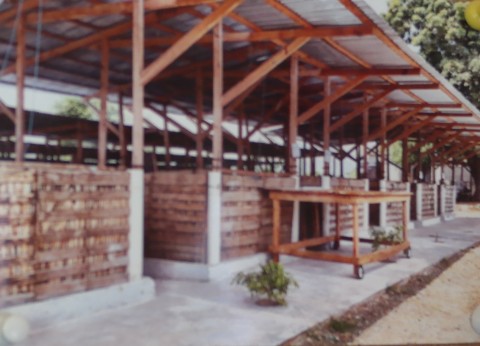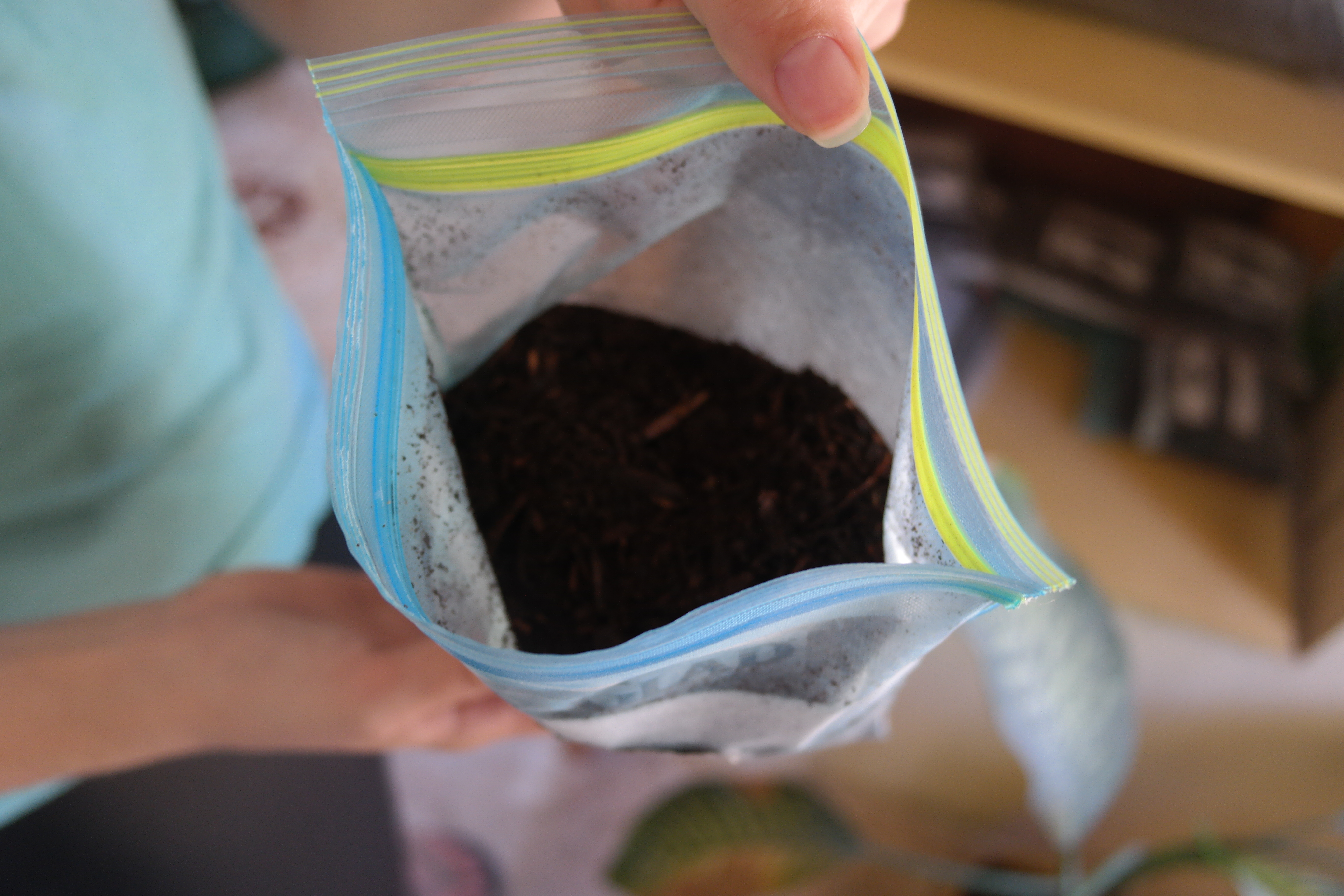
The composte is in high demand, photo: Patrick Bakke.
Patrick Bakke
Sustainability has been a major issue for sanitation. While promising to build latrines can win you elections, get you funding or create publicity. Promising good fecal sludge management on the other hand does not generate the same kind of enthusiasm. Too many latrines have been built without taking sustainability into consideration.

Patrick Bakke
In Haiti, a country where only 26% have improved sanitation facilities, an innovative organization called SOIL combines EcoSan and social entrepreneurship to aim for sustainable sanitation. SOIL operates in the cities Port-au-Prince and Cap-haitien, where they provide sanitation services for 2200 people and 1000 people benefit from their education programs and resources. They aim for sustainable sanitation through composting and selling human excreta.
SOIL has its beginning in 2006, when Sasha Kramer and Sarah Brownell built the first composting toilet in Milot, a northern town in Haiti. Though it was the earthquake in 2010 that really kick started the SOIL project and SOIL received international recognition for their emergency sanitation program.
Sustainability essential
Determined not to be one of the many unsustainable development projects, SOIL implement the EcoSan approach combined with social entrepreneurship. EcoSan is in essence to recover the valuable nutrients excreted by humans and bring it back to the soil where it can be utilized for food production. Of course this is in addition to provide the dignity and health benefits commonly associated with sanitation projects. SOILs specific approach is to compost the human excreta and sell it to farmers, organizations etc.
Selling compost grants SOIL a way to cover some of their costs, giving them an advantage over other development projects which quickly fizzle out when the media coverage dies and the money stops flowing in.
All though the EcoSan approach still lies close at heart with SOIL they have gone through some changes throughout the years. The first toilets SOIL provided were communal dual cave toilets – unfortunately there were a few problems with this approach. A sense of ownership is hard to establish with a communal toilet. The unfortunate result was that no one wanted to do any maintenance. They tried hiring manages to do the maintenance – and it worked really well, except for the fact that it was not economically sustainable.
Preferred personal toilet
Knowing your consumers is alpha omega in the business world. More and more people realize that his is also important in a developing context. SOIL mapped their consumer base through surveys and interviews.
What they discovered was that users were much more willing to pay for a personal toilet, over a communal one. Killing two birds with one stone, this also solved the maintenance problem as most people clean their own toilet!
To provide a personal toilet solution the EkoLay, which is a small household-toilet, was developed. Urine diversion and cover material ensure a smell free experience. Users pay a small fee and the fecal waste is collected once a week and transported to the waste management site. Thus they have found a solution for the fecal sludge problem. In sanitation there is a big problem in fecal sludge management – building latrines are easy, but finding a sustainable way to manage the fecal sludge is not.

The compost facilities for SOIL, photo: Patrick Bakke
Compost key
At the waste management site, the waste is composted and tested for E. coli and Ascaris to ensure that the fecal matter is thoroughly composted and do not pose as a health-hazard. The market cannot get enough of the compost, from commercial farmers, to non-governmental organizations they want more than what SOIL can provide.
It is important to avoid falling into the trap of looking towards SOIL with only rose tinted glasses. They have their fair share of challenges they have to face. For instance SOIL still does not recover the cost of running the plant through the sale of compost. The by far biggest point of expenditure is transport – but they are looking at solutions on how to spend less on transport. In addition there is the “oh so familiar” challenge of upscaling.
Another problem that is also reoccurring throughout the development world is the issue of upscaling. As of today SOIL has reached quite a limited amount of people and as eluded to in the previous sentence, transitioning from a small outreach to a large one has always been a challenge in the development world.
Thank you to SOIL for granting me the opportunity to visit them, making this little article possible. A special thank goes to Erica Lloyd for personally giving me a tour of their headquarters.

